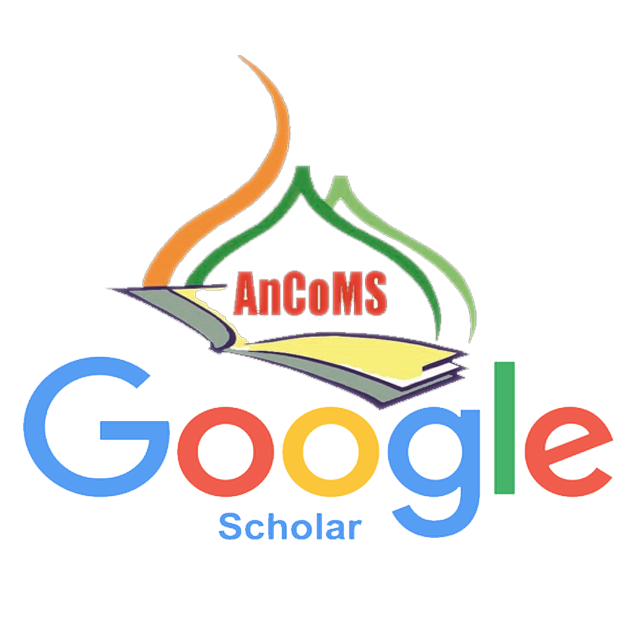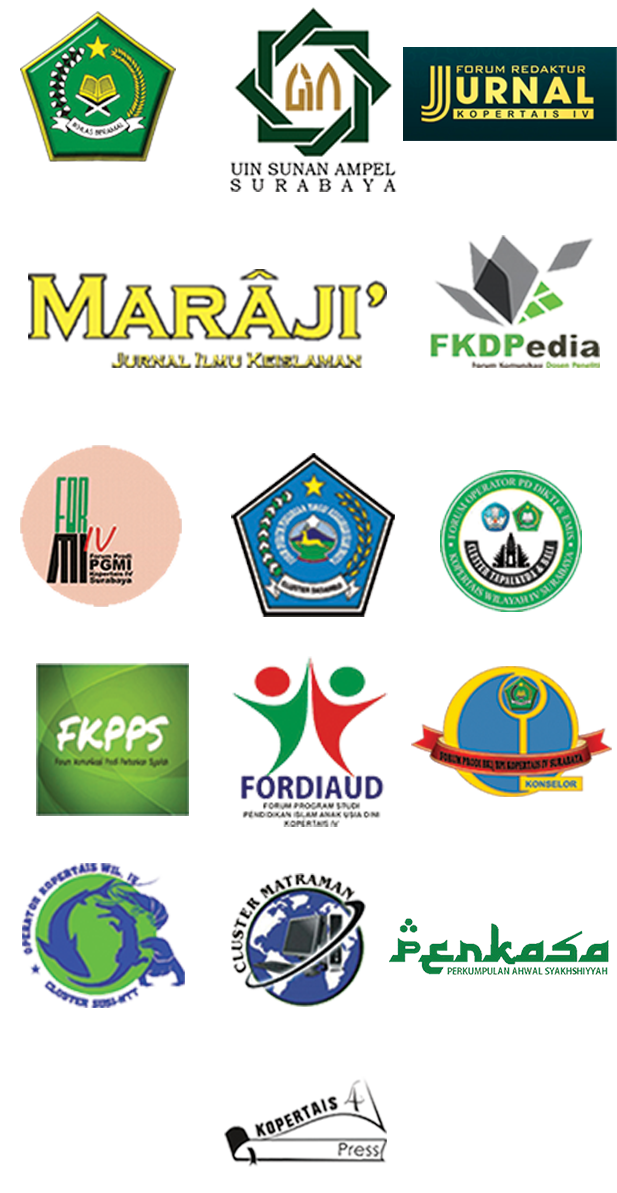Membingkai Warisan Budaya Indonesia dan Nilai-Nilai Islam dalam Science Education for Sustainable Development
Abstract
Sustainable development is a development concept that meets the needs of today's generation without compromising the ability of future generations to meet their needs. This paradigm continues to grow and be applied to the educational aspect as well as through the Education for Sustainable Development (ESD) which presents aspects of society, environment and economy with culture as the underlying dimension. This presentation aims to provides an alternative in shifting the science-learning design that links Indonesian culture and Islamic values within the framework of Science Education for Sustainable Development (SESD). The study of library research is used by considering aspects of science study, Islamic values referenced by Qur'an and Hadith, Indonesian cultural diversity, and aspects of sustainable development. Some of Indonesian cultural potentials can be foundation in SESD such as "Petri Tuk Babon" Tradition in Boyolali, "Panglima Laot" in Aceh, Pranoto Mongso in Java, Songket Melayu, "Usada Rara" Manuscript in Sasak, Lombok, and Tuak in Tradition from Batak. Ethnoscience is used to denote the socio-cultural context in science learning. "Spider Web" is recommended for use as an orientation to plan and reflect the potential of ESD learning in science.
Downloads
References
Abonyi, Okechukwu S. 1999. Effects of an Ethnoscience-Based Instructional Package on Students’ Conception of Scientific Phenomena and Interest in Science. University of Nigeria.
Adli, M. Pe mbangunan Berkelanjutan Berbasis Kearifan Lokal Sektor Perikanan, Kanun Jurnal Ilmu Hukum XIV, no. 57 (2012): 309–21.
AGE. 2007.the European Older People’s Platform. Lifelong Learning - a Tool for All Ages.
Akhmadi, Akhmadi. Pola Pemanfaatan Mata Air Tuk Babon dan Tuk Pakis oleh Masyarakat Lokal di Kawasan Taman Nasional Gunung Merbabu. Diponegoro University.
Apriana, Evi. Kearifan Lokal Masyarakat Aceh Dalam Konservasi Laut. Jurnal Biologi Edukasi 7, no. 1 (2015): 47–55.
Ariadi, Lalu Muhammad. 2017. Naskah Pengobatan dan Pertumbuhan Islam di Indonesia Tengah’. In 1st Annual Conference for Muslim Scholar (AnCoMS), edited by Abdul Muhid, Muhammad Nuril Huda, Arif Mansyuri, Fatikul Himami, Sulanam Sulanam, Abdullah Mahfudz Nazal, Upik Khoirul Abidin, and Didik Supriyanto, 979–88. Surabaya: Kopetais4 Press.
Chabay, Ilan. 2015. Sustainability and Science Education, Edited by Richard Gunstone. Encyclopedia of Science Education. Dordrecht: Springer Science+Business Media.
Djafar, Fadlin Muhammad. 2006. Songket Melayu Batubara: Eksistensi Dan Fungsi Sosiobudaya, Etnomusikologiusu.Com, 2006. http://www.etnomusikologiusu.com/uploads/1/8/0/0/1800340/fadlinsongket.pdf.
Eilks, Ingo. 2015. Science Education and Education for Sustainable Development - Justifications, Models, Practices and Perspectives’ Eurasia Journal of Mathematics, Science and Technology Education 11, no. 1 (2015): 149–58. doi:10.12973/eurasia.2015.1313a.
Eilks, Ingo, Jan Alexis Nielsen, and Avi Hofstein. 2014. Learning about the Role and Function of Science in Public Debate as an Essential Component of Scientific Literacy. Edited by Catherine Bruguière, Andree Tiberghien, and Pierre Clément. Topics and Trends in Current Science Education: 9th ESERA Conference Selected Contributions. Contributi. Dordrecht: Springer Science+Business Media B.V.
Eilks, Ingo, Franz Rauch, Bend Ralle, and Avi Hofstein. 2013. How to Allocate the Chemistry between Science and Society. In Teaching Chemistry - A Studybook: A Practical Guide and Textbook for Student Teachers, Teacher Trainees, and Teachers, edited by Ingo Eilks and Avi Hofstein, 1–36. Rotterdam/ Boston/ Taipei: Sense Publishers.
Hakim, Luchman. 2014. Etnobotani dan Manajemen Kebun-Pekarangan Rumah: Ketahanan Pangan, Kesehatan, dan Agrowisata. Malang: Penerbit Selaras.
Holbrook, Jack. 2005. Making Chemistry Teaching Relevant’. Chemical Education International 6, no. 1.
Holbrook, Jack, and Miia Rannikmae. 2007. The Nature of Science Education for Enhancing Scientific Literacy’ International Journal of Science Education, Taylor & Francis (Routledge) 29, no. 11.
Lemke, J. L. 2001. Articulating Communities: Sociocultural Perspectives on Science Education. Journal of Research in Science Teaching 38, no. 3. doi:10.1002/1098-2736(200103)38:3<296::AID-TEA1007>3.0.CO;2-R.
Marzuki, Abdillah M. 2016. Mengenal Filosofi Batik Rifa’iyah’ Mediaindonesia.com, 2016. http://mediaindonesia.com/news/read/56468/mengenal-filosofi-batik-rifaiyah/2016-07-17.
National Science Teachers Association. 2003. Standards for Science Teacher Preparation.
Orey, Daniel, and Milton Rosa. 2007. Cultural Assertions and Challenges towards Pedagogical Action of an Ethnomathematics Program’. For the Learning of Mathematics 27, no. 1.
Roth, Wolff Michael, and Stuart Lee. 2004. Science Education As/for Participation in the Community’. Science Education 88, no. 2: 263–91. doi:10.1002/sce.10113.
Sarwanto, Sarwanto, Rini Budiharti, and Dyah Fitriani. 2010. Identifikasi Sains Asli (Indigenous Science) Sistem Pranata Mangsa Melalui Kajian Etnosains’ In Seminar Nasional Pendidikan Biologi FKIP UNS 2010.
UNESCO. 2010. Defining Religion and Culture: Religion, Values, Culture and Sustainable Development’. http://www.unesco.org/education/tlsf/mods/ theme_c/mod10.html?panel=1#to.
———. 2006. Framework for the UNDESD International Implementation Scheme. Paris: UNESCO.
Widiyanto, Danar. 2016. Kenduri Pohon, Tradisi Untuk Menjaga Mata Air Di Tunggularum. Krjogja.com, http://krjogja.com/web/news/read/13196/ Kenduri_Pohon_Tradisi_untuk_Menjaga_Mata_Air_di_Tunggularum









